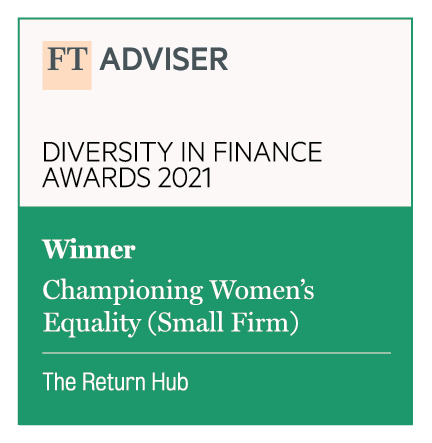
A portfolio career is as individual as the professional living it. Most encompass a mix of non-executive board roles (paid and pro bono), consultancy in your professional field, and/or mentoring or coaching activities.
Our partners Women on Boards share advice from their networks of thousands of non-executive directors on when and why to make the move successfully. More portfolio career advice from Women on Boards here.
Building a portfolio of a number of non-executive director positions can be highly attractive for those wishing to step aside from intensive executive leadership roles but still wanting intellectual challenge and to use their skills (and also still generate an income).
The advantages of a portfolio career include variety across a range of sectors; a chance to focus on strategy and see the company as a whole; and a better work-life balance, although this is often simply in gaining greater flexibility in managing your time. Be warned though, the compensation is lower than executive board positions for the same companies.
When to make the move
Although this is highly personal, many portfolio NEDs consider there are significant benefits to gaining board experience alongside your executive career.
“Don’t transition into a portfolio career too soon. Being a leading executive is one of the best jobs in the world – don’t rush to leave it. Besides, the skills you gain from your executive experience which will make you a better NED in future.” Alice Avis, former CEO of The Sanctuary Spa
“I wish that I had started sooner, with a role alongside my executive career for much longer, learning, taking on new skills and networking across the board community.” Joanne Thompson, portfolio NED
“If you’re still in your executive role, use that time to start a discussion with head hunters. While you have that job title and potential budget for recruiting, you’re much more interesting to them.” Rowena Ironside, portfolio NED
But, with determination and a successful executive career, nor is it ever too late:
“It was only when I stopped working full time that I had the band-width to plan my move,” Francesca Ecsery, portfolio NED on listed boards
“In my case, a portfolio career was something which happened quickly. I did not have time to procrastinate.. so far I have had no reason to regret the choice.” Alexandra Beckwith, portfolio NED
Consider what kind of portfolio you want
One of the benefits of a portfolio career is opening up new opportunities and challenges. You should steer what balance of roles you aim for within a portfolio – consider your time, interests and expertise but don’t limit yourself!
Many portfolio NEDs hold a balance of paid and pro bono roles. Gaining experience on an unpaid board can be a great start to build up to the most competitive boards roles.
Sector experience is useful but not a pre-requisite for non-executive appointments. However there should be some affinity between your sector of experience and the one/s you are targeting. Think which businesses have similar characteristics or drivers.
“Companies and headhunters tend to want to pigeon-hole us, both by career expertise and by sector. Resist! Building an NED portfolio is our best opportunity to have terrific and surprising new work experiences. It’s also stimulating to explore a mix of public, private and third sector roles to begin with.” Joanna Baldwin, portfolio NED
“Be clear about what sectors you are interested in and board types, for example, listed or not listed. However don’t rule out lots of board sectors” Paul Dreschler CBE – Paul always thought he would never touch the construction sector and or private companies, yet joining the board Wates Group was one of the best decisions he made in his career – it is both a construction and a private family company!
“I wanted roles that inspired me, enabled me to work with people I enjoy working with, fulfilled my personal wish to stretch and learn things and had business and public interest goals,” Vanessa Sharp, portfolio NED
And be practical!
Do also bear in mind the practicalities of growing and managing a portfolio, both in terms of any financial and time considerations:
“Start sooner rather than later. It takes longer than you think [to get a role] and is a job in itself to get these jobs.” Laurie Benson, portfolio NED on FTSE listed boards
“Don’t assume you’re going to step straight from a very well paid executive role into the same sort of income. It takes most people a few years to get up to [a similar level as their executive role], so consider some consultancy or coaching in your portfolio mix.” Rowena Ironside, portfolio NED
“Take your time to build a portfolio over two or three years, so you are coming off boards in a staged fashion. Then you also have capacity to take opportunities as they come.” Caroline Brown, portfolio NED Top of Form
Enjoy it!
A portfolio career offers much more variety and flexibility than many executive roles! Formal time in board meetings is set far in advance, but the (significant) more informal parts of the role – reading papers, meeting with the executive and seeing the ‘front line’ of the organisation – is much more flexible. Building a portfolio across a range of sectors and organisation types is a wonderful opportunity to broaden your experience and perspective.
It can get lonely without direct ‘colleagues’ so it is important to build your own networks for that peer support. Women on Boards’ membership is designed to offer just that, broadening your own connections.

